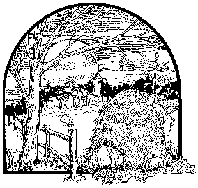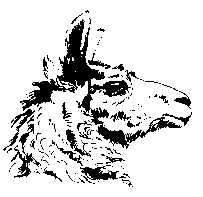 FALL and WINTER PET CARE TIPS
FALL and WINTER PET CARE TIPS
Fall and winter and the holiday seasons all can pose special risks to your pets. Here are some tips for
keeping everyone safe and healthy.
Maintenance Tips
- Always provide fresh, clean water for your pet. If the weather is cold, please check their water for ice
formation and remove the ice.
- Indoor pets should be provided with a warm, dry area free from drafts. Provide bedding that off cold
floors, and wash bedding weekly if possible (the fleas will hate you).
- Outdoor pets should have dry shelter out of the wind. Bring cats and dogs into the house if the
weather conditions are rainy , snowy or weather conditions are severe (cold, etc).
- Staying warm requires extra calories, pets may need more food or a change in diet. Talk to your
veterinarian about your pets needs.
- Ice, snow and mud-Remove ice, salt, mud, snow from your pets coats, feet as soon as possible. If
the skin looks reddish, white or grey in cold weather, may be scaly or peeling, suspect frostbite if the
weather has been really cold. Talk to a veterinarian immediately.
- Shedding-Most dogs and cats shed their summer coats in the fall before putting on their winter coat.
Most years this is light and not very noticable. Special attention should be paid to hair coats and daily
or weekly brushing (as needed) should help your pet and you be happier.
[menu]
- *Cats and kittens like to nap on warm places, this can include car engines! Knock on the hood of
your car or truck or honk the horn, then wait a few minutes before starting the engine. If in doubt,
open the hood and look.
- *Antifreeze smells good and tastes very sweet, Very small amounts can kill your pet. If a cat walks
through in and then licks its paws, it will get enough. The damage is done but chemicals crystallizing
in the kidney, so symptoms may not show up for a few days and then it may be too late. Thoroughly
clean up any spills, store antifreeze in tightly closed containers and store where pets and children
can't get to them. Sierra make a non toxic antifreeze. Do not dispose of antifreeze by pouring into the
gutter and never let your pet drink from the gutters.
- *Fall is the most common time of year for male cats to "block" or forming small " stones "that block the
flow of urine from the bladder through the urethra. Any cat that seems to be straining "to go to the
bathroom" should be checked by a veterinarian at once. One of the most common complaints I heard
was that the owner thought the cat was constipated. Why this time of year? May have to do with
decreased water intake.
- *Halloween. Candy is not good for your pets, especially chocolate. Keep cats inside to avoid
tricksters and possible encounters with cars, make sure that the dogs are kept safe ,with all the
visitors and open doors to sneak out of, dogs can also get confused and frightened by the costumes .
- *Holiday food. Alcoholic beverage, candy, chocolate, turkey and fixing, pork , fish, bones, just to
name a few hazards...keep your pet on its regular diet. I always saw lots of dogs with vomiting and
diarrhea right after Thanksgiving and Christmas, and some were very seriously ill. Another food
related hazard is the plastic six-pack beverage holders, kittens especially can become entangled in
them. Cut them up before putting into the garbage. This will also help the wildlife at the landfill too
(especially birds).
- *Poisonous plants--Many plants , including Christmas rose, holly, mistletoe, philodendron,
dieffenbachia (see poisonous plant list) are toxic to your pet. Keep them out of your pets reach.
- *Holiday paraphernalia- Electric cords, tinsel, glass ornaments, candles, spray on-snow (some are
non-toxic-read the label), ribbons, plastic or foil wrapping, etc. can be dangerous to your pet. Cover
up or hide electric cords, never let your pet chew on them. Do not tie ribbons around pets necks or
limbs. Watch out for rubber bands too.
[menu]
 FALL and WINTER PET CARE TIPS
FALL and WINTER PET CARE TIPS FALL and WINTER PET CARE TIPS
FALL and WINTER PET CARE TIPS <--Return to Dr Sue's Home Page, or go to
<--Return to Dr Sue's Home Page, or go to